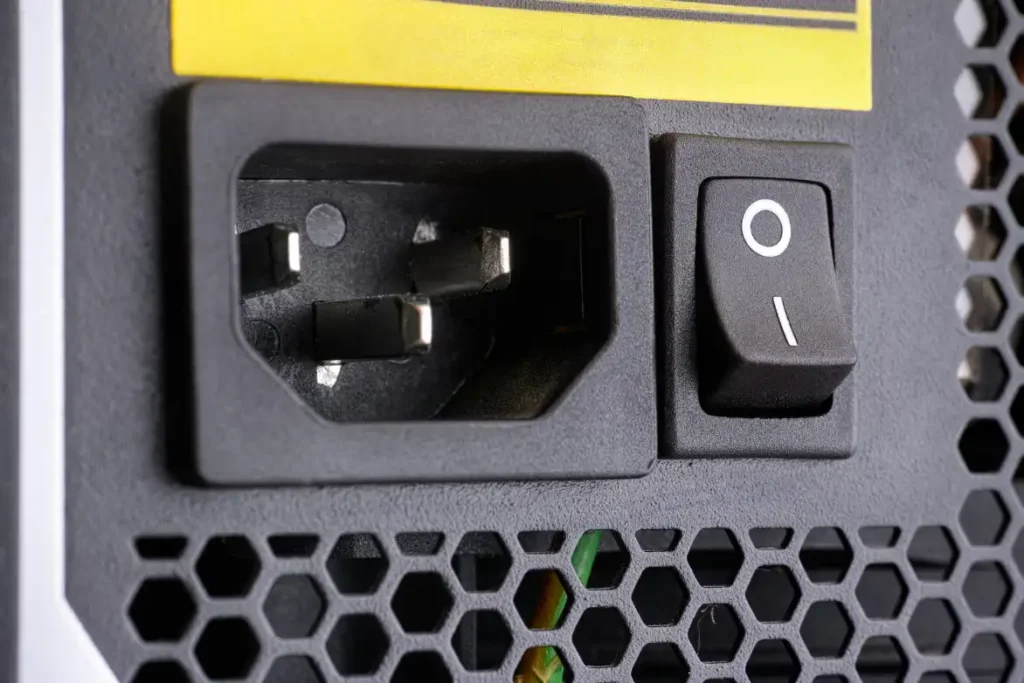Are you looking to assemble a Custom PC, and finding out how to calculate energy consumption seems complex? In this article, I break down the various information you need to know before embarking on the assembly of a Custom PC.
How to calculate the energy consumption of a Custom PC ?
- How powerful are PC components?
- What is the average power consumption of a computer in watts?
- How to calculate the energy consumption of a Custom PC?
How powerful are PC components?
A PC’s power consumption depends on the type of component and its power.
For example, a gamer PC will consume much more power because its components are more powerful than an office PC.
| Custom PC components | Power requirements |
|---|---|
| Motherboard | 25 – 100 W |
| CPU / Processor | 55 – 150 W |
| GPU / Graphics card | 25 – 350 W |
| HDD hard disk | 0.7 – 9 W |
| Solid-state drive (SSD) | 0.6 – 3 W |
| RAM | 2 – 5.5 W |
| Housing fan | 0.6 – 3 W |
| CD / DVD player | 15 – 27 W |
| CPU fan | 5 – 10 W |
What is the average power consumption of a computer in watts?
A computer’s power consumption can vary considerably depending on the power of the processor, graphics card, connected peripherals and so on.
A PC’s power consumption can range from 300 Watts to 1250 Watts.
The average power consumption of a computer is around 550 Watts.
| Office automation | 300W to 650W |
| Gamer | 550W to 1250W |
| Laptop PC | 45W to 120W |
How to calculate the energy consumption of a Custom PC?
As you’ve seen, PC power consumption is extremely variable, and there’s no room for randomness in this area.
Let’s take the concrete example of a computer on Mesure :
| Component | Model | Consumption |
|---|---|---|
| Motherboard | Gigabyte B760 Gaming | 100 W |
| CPU | i5-12400F | 117 W |
| SSD M.2 | Crucial P3 Plus 2TB | 10W |
| Graphics card | MSI GeForce RTX 4060 Ventus 2X Black 8G OC | 135 W |
| RAM (X4) | Crucial DDR4 3200MHz 4x16GB | (10W x 4)= 40W |
| CPU fan | Be quiet Pure Rock | 10 W |
| Security | Add 20% of total | 412W + 20% = 494.4W |
Advice: always go for the highest variable, as it’s better to have a more powerful power supply than a less powerful one. In addition, think about possible upgrades so you don’t have to invest in a new power supply when upgrading your computer’s components.
What is the risk of a lack of power from the power supply?
- System instability : If the power supply is not sufficient to power all PC components, this can lead to instabilities such as system crashes, unexpected reboots or hardware errors.
- Overheating : When the power supply is unable to deliver sufficient power, some components may operate at unstable voltages, causing the computer to overheat.
- Component damage : Under-feeding of components can lead to premature wear and component malfunction.

